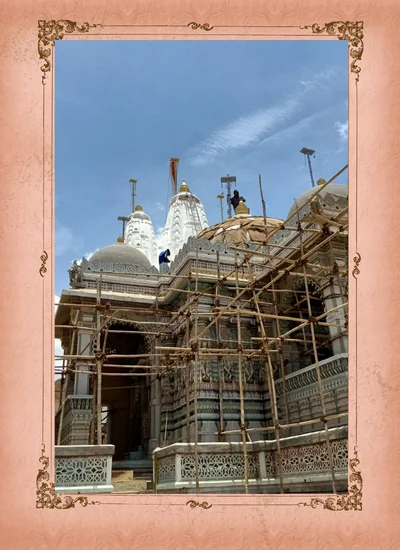Maharashtra is renowned for its rich architectural heritage, particularly in its temples, which reflect the intricate craftsmanship and spiritual significance of the region. Temple contractors play a vital role in the preservation and continuation of this heritage, ensuring that these sacred spaces not only meet contemporary needs but also honor traditional designs and techniques. This article explores the critical role temple contractors play in safeguarding Maharashtra’s architectural legacy.
1. Expertise in Traditional Techniques
Temple contractors possess specialized knowledge and skills that are essential for preserving traditional construction techniques. These methods often include intricate stone carving, woodwork, and the use of locally sourced materials that have historical significance. By employing these techniques, contractors help maintain the authenticity of temple architecture, ensuring that new constructions and restorations remain faithful to their historical roots. This expertise is crucial in creating structures that reflect the unique architectural styles of Maharashtra, such as the Hemadpanthi, Dravidian, and Nagara styles.
2. Restoration and Renovation of Historical Temples
Many temples in Maharashtra face challenges due to age, natural wear, and environmental factors. Temple contractors play a key role in the restoration and renovation of these historical sites. Their work often involves careful assessment of the temple’s condition, followed by meticulous restoration to preserve original features while ensuring structural integrity. This process may include repairing damaged sculptures, restoring faded murals, and reinforcing the building’s foundation. Such efforts are essential for keeping these historical treasures accessible to future generations.
3. Promoting Sustainable Practices
In recent years, there has been a growing emphasis on sustainability within the construction industry. Temple contractors are increasingly adopting eco-friendly practices that not only minimize environmental impact but also align with traditional values. For example, using locally sourced materials reduces transportation emissions and supports local economies. Additionally, integrating sustainable technologies such as rainwater harvesting systems and solar panels can enhance the temple’s functionality while respecting its cultural significance. This commitment to sustainability ensures that the architectural heritage is preserved in a manner that is environmentally responsible.
4. Community Engagement and Education
Temple contractors often serve as liaisons between the community and the construction process. By involving local residents, artisans, and stakeholders in discussions about the design and construction, contractors help foster a sense of ownership and pride in the heritage site. This engagement not only strengthens community ties but also facilitates the transfer of traditional knowledge and skills to younger generations. Contractors can organize workshops and training sessions, ensuring that the craftsmanship associated with temple construction is passed down and preserved.
5. Compliance with Legal and Cultural Standards
Preserving Maharashtra’s architectural heritage also requires adherence to legal regulations and cultural standards. Temple contractors must navigate local zoning laws, building codes, and heritage protection policies to ensure that their projects comply with necessary regulations. Understanding these legal frameworks is crucial for safeguarding historical sites from unauthorized alterations or demolitions. By ensuring that construction practices respect both legal and cultural standards, contractors contribute to the broader effort of preserving Maharashtra’s architectural heritage.
6. Innovative Design Adaptations
While preserving traditional architectural styles is paramount, temple contractors also face the challenge of adapting designs to meet contemporary needs. This may involve creating spaces that accommodate modern worship practices, enhance accessibility, or incorporate new technologies. Contractors can achieve this balance by carefully blending traditional elements with modern innovations. For instance, incorporating amenities such as seating areas or visitor information centers can make temples more accessible without detracting from their historical significance.
7. Documentation and Research
An often-overlooked aspect of preserving architectural heritage is thorough documentation and research. Temple contractors play a crucial role in this process by documenting construction methods, materials used, and the historical context of the temple. This information can serve as a valuable resource for future restorations and studies of Maharashtra’s architectural heritage. Moreover, collaborating with historians and archaeologists can help contractors gain insights into traditional practices, further enhancing the quality of their work.
8. Celebrating Cultural Identity
Finally, temple contractors contribute to the preservation of Maharashtra’s architectural heritage by celebrating the cultural identity that these temples represent. Each temple is a reflection of the local community’s beliefs, history, and artistic expressions. By constructing and restoring these sacred spaces, contractors help maintain the cultural narratives that are integral to Maharashtra’s identity. This role extends beyond mere construction; it is about fostering a deep connection between the community and its heritage.
Conclusion
Temple contractors in Maharashtra are essential guardians of the region’s architectural heritage. Through their expertise, commitment to traditional techniques, and community engagement, they play a pivotal role in preserving and celebrating the rich tapestry of temple architecture. As the demands of modern society evolve, their ability to balance innovation with tradition will be crucial for ensuring that Maharashtra’s temples continue to serve as both spiritual sanctuaries and cultural landmarks for generations to come.
For those seeking dedicated and skilled temple construction services, consider Temple Contractor in Maharashtra. Their expertise in preserving architectural heritage ensures that every temple is built with respect for tradition, enriching the spiritual landscape of Maharashtra while honoring its rich history.

